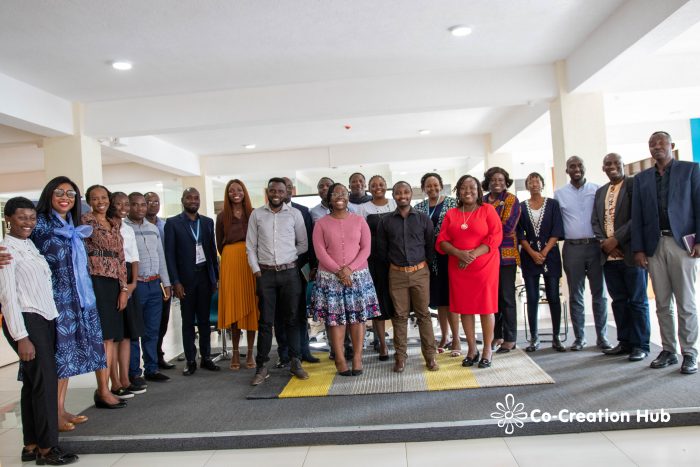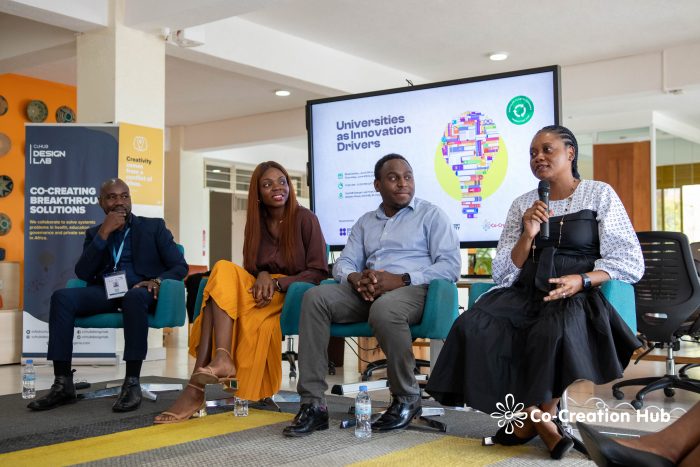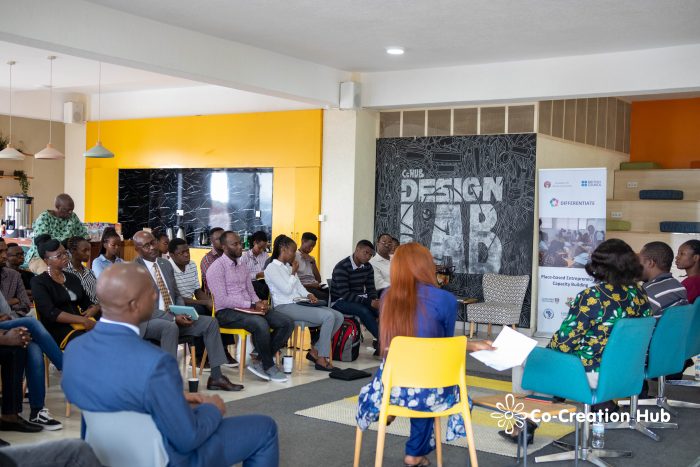Co-Creation Hub (CcHUB) hosted an inaugural event dubbed Universities as Innovation Drivers on the 22nd and 23rd of June 2022 in Rwanda Kigali – which was sponsored and powered by the British Council. The event was held during the Commonwealth Heads of Government Meeting (CHOGM) under The Circular Plastic Economy Innovation hub (CPEIHub).
The CPEIHub is led by a consortium consisting of Co-creation Hub Ltd, De Montfort University, UK, and Pan African University Institute of Life and Earth Sciences (PAULESI), Ibadan. This is one of the projects under the British Council’s Innovation for African Universities (IAU) Initiative aimed at fostering innovation and entrepreneurship by building capacity and collaborating with researchers, students, and industry experts within university institutions.
The two-day event provided a platform for amazing conversations that sought to spark how Universities can contribute to the innovation ecosystem and how we can build entrepreneurial capability in collaboration with other stakeholders in the industry.

The sessions were graced by;
- Adetomi Soyinka, Director of Programmes at the British Council,
- Dr. Eugene Mutimura, Executive Secretary at National Council for Science and Technology (NCST),
- Dr. Muyiwa Oyinlola, Director of IESD and Associate Professor in Engineering for Sustainable Development at De Montfort University,
- Silifat Abimbola Okoya, Professor Institute of Energy and Sustainable Development De Montfort University,
- Prof. Esther Akinlabi, Director PAULESI,
- Damilola Teidi, Director of Startups at CcHUB,
- and other delegates representatives from academia, private sector, government, IAU network, and student representatives.
On day 1 we had deliberations from our sponsors – British Council, the Innovation for African Universities Network Partners, academia from Kenya, Rwanda, Nigeria, South Africa, and the UK, government representatives, university students, and Entrepreneurship Support Organizations.


The event shed light on what each stakeholder is doing in fostering innovation and entrepreneurship in their respective ecosystem.
Discussions focused on how universities and the private sector can foster innovation and entrepreneurship in their respective ecosystem and strengthen partnerships. An aspect that was clear during the conversation was the need to act and ensure that we leverage each other’s strengths and build capacity.
Some of the key highlights from day 1 included:
- Having consistent and strategic communication is key for effectively presenting areas of collaboration with the private sector.
- There is a need to take action as individuals to change the status quo and also work together collectively as this will help accelerate the impact of the work between universities and the private sector.
- Building the entrepreneurial capacity and skills within the student community is important and exposing them to established innovations in the ecosystem.
- Leveraging the Human-Centered Design approach is encouraged in the design and development of programmes, that is, involving the stakeholders early on and understanding their needs.
Day 2 sought to spark how universities and students can contribute to the innovation ecosystem and how each stakeholder can build entrepreneurial capability in collaboration with other industry players. In addition, we had two exciting presentations from two innovators, Dr. George Olouch and Olubunmi Josephine from Pan-African University of Science and Technology Institution (PAUSTI), Nairobi, Kenya, and Obafemi Awolowo University, Ife, Nigeria, respectively. They presented their innovations and gave insights on how they developed their solutions and plans for commercialization.


The key highlights from day 2 were:
- There is a need to create an enabling environment for academia, students, government, private sector, and media so there can be one conversation that will be geared towards fostering innovation and entrepreneurship in the continent.
- It is paramount to review the curriculum, with the students’ input, and infuse innovation and entrepreneurship in the universities.
- In addition to supporting students to be innovative, it is essential to build the entrepreneurial capacity of the lecturers to enable them to provide the right guidance to students.
- Provision of mentorship that can unleash innovation and entrepreneurship among university students.
Universities are unquestionably essential innovation drivers, and CcHUB will be hosting more of these forums as future developments are generating a lot of excitement in the higher education space. There is anticipation surrounding innovations out of HEI institutions that will seek to change the role of the academic institutions in driving innovation on the continent.

